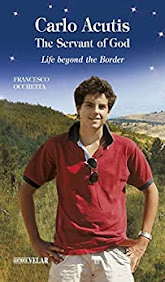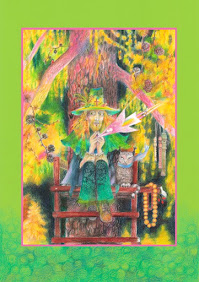Synchronicity today, as news of the sensational but expected verdict in the Philly sex abuse trial in the US reverberates through the air waves:
First I came across this resonant statement from Bishop Jim Burch of One Spirit Catholic Diocese
The old words, the old theology, the old
rituals, the old concept of “religion,” the old acceptance of church
“authority,” the old allegiance to institutional church – they are all
falling away. People are demanding and finding God Within – just where
Jesus told us God would be. Sometimes in community, sometimes in the
depth of our shared individuality – this is new understanding, this is
new aliveness in joy, this is creative awakening of humanity. It is all
the work of the Holy Spirit. It is the unique niche of the Catholic
Diocese of One Spirit. So let’s get on board. Let’s inculcate it into
the fiber of our walking/breathing glorious existence. It is all there
Within; we just have to frame it, name it, proclaim it.
Then I came across this wonderful poem by John Churchman at Bridget Mary's wonderful blog, which reiterates some of the same wisdom as contained in Bishop Burch's brief statement - namely that the old acceptance of church authority, the old allegiance to the institutional church - is falling away. And the Philly trial, for those following it, (See William Lindsey's great blog, Bilgrimage for full reportage) is one great nail in the coffin. Yet for all its painful, shocking revelations, it should be seen as a grace and sign of the Spirit, helping to wean us from our dependance on the institution and helping us as well to engage with the grieving process so that the new life of the church may be born.
GIFT STOLEN
Institutional religions strive to make us totally dependent
on external
authority;
Protestants, Scripture;
Catholics, the Magisterium.
Institutional religions require
us to guide our lives
by Scripture as they translate
and define it,
and by the Magisterium’s
pronouncements with its corner on the Truth.
All this in the face of the True
Gift of the Holy Spirit,
all the answers we need deep
within.
Scripture and the Magisterium
are important sources of Wisdom,
which we should consult in
making our life choices,
but ultimately we each have been
given the guidance we need,
the gift of the Holy Spirit deep
within.
There is a touch of the Divine
within us all
and we can connect to that
Divinity
within us and within each
other.
Read the entire poem here.
This poem was so moving and powerful that I made a search of its author, John Churchman, and came across this extraordinary long reflection he had posted in the comments section at National Catholic Reporter in 2009.
THE GRIEVING CHURCH.......
Things are coming to an end!
For the prophet, this conclusion becomes a judgment.
These things must end.
In fact, the prophet dares to proclaim
God is bringing an end to things;
Our collective groans are indisputable evidence
that the current state of the Church
is not the will of God.
The collapse of what was seen as sacred,
the prophet declares,
is a demise brought about
by none other than God’s own self.
God himself,
God herself is bringing an end to the Church
or to put it bluntly:
A particular way of being Church is dying.
There’s an unstoppable wave of seismic changes
at work in the Church
which will take the priesthood, the Church and us
to places unknown,
and for that reason,
scary and terrifying.
The church is dying
and the prophet proclaims this demise is aided
and abetted by God’s own self.
That’s the uncomfortable, unpopular, yet life-giving and essential proof
the prophet must proclaim today.
The Hope: “See I Am Doing Something New”
But the prophet also must do a second thing;
otherwise, you are not just a prophet,
you are a groaner.
The prophet not only announces to the people
an end the community cannot admit,
we must also proclaim to the people
a hope they can hardly believe;
.........
Both nostalgia and despair are present in the priesthood and in the Church.
But despite both desperate denial
and fatalistic despair,
a prophetic voice speaks in a different key.
The prophet says, “Look! Pay attention!
God is doing something new.”
Against both nostalgia and despair,
the prophet proclaims hope –
the advent of a new future,
not a simple re-arranging of the old furniture,
nor a continuation of the former ways
in different configurations.
As Jeremiah says, “God will make a new covenant,
but it will be a covenant very different from the old.”
Hope is the belief that things can and will be radically different than they are now.
As Isaiah declares, “Now, it springs forth,
do you not perceive it?”
A prophet pierces the veil of numbing despair
and energizes the new hope
by offering symbols and images
which nourish an alternative vision.
The Church is dying;
a new Church is being born;
and that means, if we are to be prophets,
we need to be hospice ministers for a dying Church.
Which brings me back to Bishop Jim's earlier statement and the witness of alternative Catholic communities like One Spirit and Roman Catholic Women Priests. In the words of John Churchman,
"the advent of a new future,
not a simple re-arranging of the old furniture,
nor a continuation of the former ways
in different configurations.
not a simple re-arranging of the old furniture,
nor a continuation of the former ways
in different configurations.
As Jeremiah says, “God will make a new covenant,
but it will be a covenant very different from the old.”
but it will be a covenant very different from the old.”
In other words, new forms of church are being born right before our eyes, but they are far out on the margins, outside the doors of the formal institution. The time for patiently waiting for the hierarchy to - one day - reform, is long past. We cannot simply wait - once again - for the bishops to "catch up" with the whole community of church. The whole system of being beholden to an external authority which time after time fails to read the signs of the times, and which hold the community of church back for years and even eons, this system must go. To echo Father John McNeill, we need fallible leaders so the new church of the Spirit can be born, a community of those who find God Within, a community of believers we do not ignore tradition, who respect it and consult it, but who ultimately make their own adult decisions based upon their own interior discernment, because..
ultimately we each have been
given the guidance we need,
the gift of the Holy Spirit deep
within.
There is a touch of the Divine
within us all
and we can connect to that
Divinity
within us and within each
other.


















